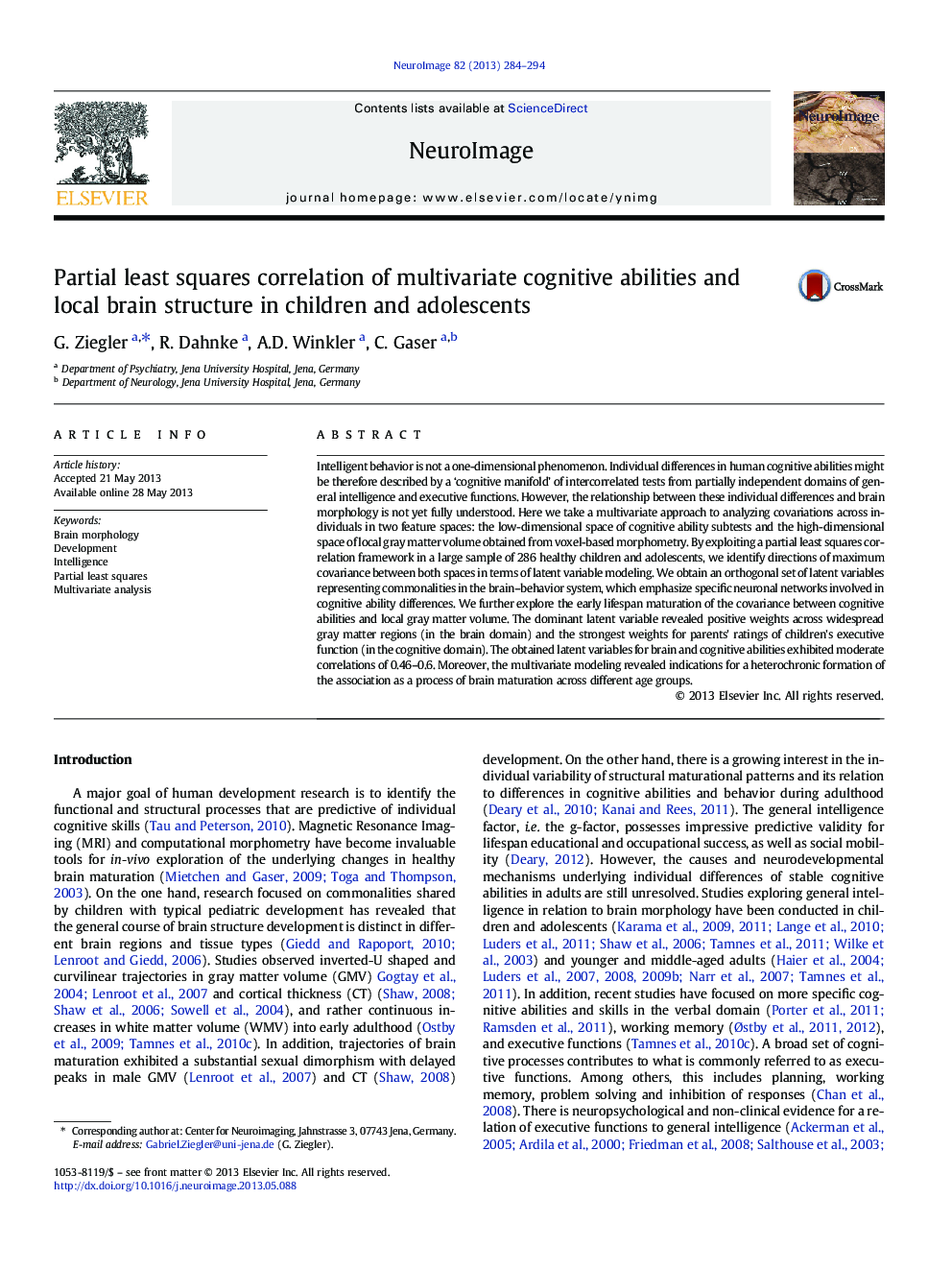| Article ID | Journal | Published Year | Pages | File Type |
|---|---|---|---|---|
| 6028927 | NeuroImage | 2013 | 11 Pages |
â¢A multivariate approach is used to analyze early lifespan individual differences.â¢Children's cognitive ability profiles covary with local gray matter volume.â¢The latent variables revealed substantial maturation effects across age groups.
Intelligent behavior is not a one-dimensional phenomenon. Individual differences in human cognitive abilities might be therefore described by a 'cognitive manifold' of intercorrelated tests from partially independent domains of general intelligence and executive functions. However, the relationship between these individual differences and brain morphology is not yet fully understood. Here we take a multivariate approach to analyzing covariations across individuals in two feature spaces: the low-dimensional space of cognitive ability subtests and the high-dimensional space of local gray matter volume obtained from voxel-based morphometry. By exploiting a partial least squares correlation framework in a large sample of 286 healthy children and adolescents, we identify directions of maximum covariance between both spaces in terms of latent variable modeling. We obtain an orthogonal set of latent variables representing commonalities in the brain-behavior system, which emphasize specific neuronal networks involved in cognitive ability differences. We further explore the early lifespan maturation of the covariance between cognitive abilities and local gray matter volume. The dominant latent variable revealed positive weights across widespread gray matter regions (in the brain domain) and the strongest weights for parents' ratings of children's executive function (in the cognitive domain). The obtained latent variables for brain and cognitive abilities exhibited moderate correlations of 0.46-0.6. Moreover, the multivariate modeling revealed indications for a heterochronic formation of the association as a process of brain maturation across different age groups.
